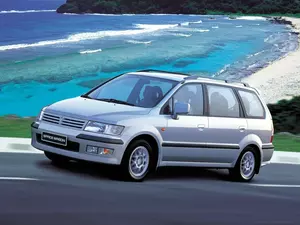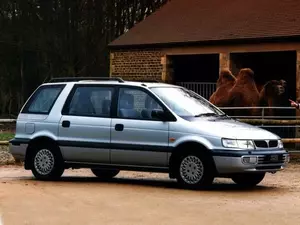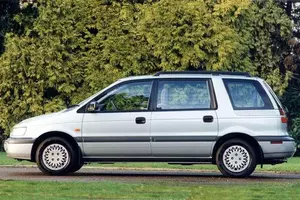
| Vehicle | Precise engine size | Difference from world average | Engine size to consumption ratio | Horsepower from 1 L | Engine size to 100 kg of weight |
|---|---|---|---|---|---|
| 2.4 GDi 16V |
2.35 L (2350 cc) |
0.2% bigger | 98 cc to 1 mpg | 63 hp from 1 L | 147 cc to 100 kg |
| 2.4 GDi 16V 4X4 |
2.35 L (2350 cc) |
0.2% bigger | 102 cc to 1 mpg | 63 hp from 1 L | 138 cc to 100 kg |
| 2.4 GDi |
2.35 L (2351 cc) |
0.2% bigger | - | 70 hp from 1 L | 157 cc to 100 kg |
| 2.0 i 16V |
2 L (1997 cc) |
14.9% smaller | - | 67 hp from 1 L | 133 cc to 100 kg |
| 3.0 GDi 24V |
2.97 L (2972 cc) |
26.7% bigger | - | 72 hp from 1 L | 186 cc to 100 kg |
| 3.0 GDi 24V 4X4 |
2.97 L (2972 cc) |
26.7% bigger | - | 72 hp from 1 L | 175 cc to 100 kg |
| Vehicle | 2.4 GDi 16V |
|---|---|
| Precise engine size | 2.35 L (2350 cc) |
| Difference from world average | 0.2 bigger |
| Engine size to consumption ratio | 98 cc to 1 mpg |
| Horsepower from 1 L | 63 hp from 1 L |
| Engine size to 100 kg of weight | 147 cc to 100 kg |
| Vehicle | 2.4 GDi 16V 4X4 |
| Precise engine size | 2.35 L (2350 cc) |
| Difference from world average | 0.2 bigger |
| Engine size to consumption ratio | 102 cc to 1 mpg |
| Horsepower from 1 L | 63 hp from 1 L |
| Engine size to 100 kg of weight | 138 cc to 100 kg |
| Vehicle | 2.4 GDi |
| Precise engine size | 2.35 L (2351 cc) |
| Difference from world average | 0.2 bigger |
| Engine size to consumption ratio | - |
| Horsepower from 1 L | 70 hp from 1 L |
| Engine size to 100 kg of weight | 157 cc to 100 kg |
| Vehicle | 2.0 i 16V |
| Precise engine size | 2 L (1997 cc) |
| Difference from world average | 14.9 smaller |
| Engine size to consumption ratio | - |
| Horsepower from 1 L | 67 hp from 1 L |
| Engine size to 100 kg of weight | 133 cc to 100 kg |
| Vehicle | 3.0 GDi 24V |
| Precise engine size | 2.97 L (2972 cc) |
| Difference from world average | 26.7 bigger |
| Engine size to consumption ratio | - |
| Horsepower from 1 L | 72 hp from 1 L |
| Engine size to 100 kg of weight | 186 cc to 100 kg |
| Vehicle | 3.0 GDi 24V 4X4 |
| Precise engine size | 2.97 L (2972 cc) |
| Difference from world average | 26.7 bigger |
| Engine size to consumption ratio | - |
| Horsepower from 1 L | 72 hp from 1 L |
| Engine size to 100 kg of weight | 175 cc to 100 kg |

| Vehicle | Precise engine size | Difference from world average | Engine size to consumption ratio | Horsepower from 1 L | Engine size to 100 kg of weight |
|---|---|---|---|---|---|
| 2.4 GDI |
2.35 L (2351 cc) |
0.2% bigger | - | 64 hp from 1 L | 157 cc to 100 kg |
| 2.4 GDI 4x4 |
2.35 L (2351 cc) |
0.2% bigger | - | 64 hp from 1 L | 147 cc to 100 kg |
| Vehicle | 2.4 GDI |
|---|---|
| Precise engine size | 2.35 L (2351 cc) |
| Difference from world average | 0.2 bigger |
| Engine size to consumption ratio | - |
| Horsepower from 1 L | 64 hp from 1 L |
| Engine size to 100 kg of weight | 157 cc to 100 kg |
| Vehicle | 2.4 GDI 4x4 |
| Precise engine size | 2.35 L (2351 cc) |
| Difference from world average | 0.2 bigger |
| Engine size to consumption ratio | - |
| Horsepower from 1 L | 64 hp from 1 L |
| Engine size to 100 kg of weight | 147 cc to 100 kg |

| Vehicle | Precise engine size | Difference from world average | Engine size to consumption ratio | Horsepower from 1 L | Engine size to 100 kg of weight |
|---|---|---|---|---|---|
| 2.0 GLXi 4x4 |
2 L (1997 cc) |
14.9% smaller | 83 cc to 1 mpg | 67 hp from 1 L | 143 cc to 100 kg |
| 2.0 GLXi |
2 L (1997 cc) |
14.9% smaller | 77 cc to 1 mpg | 67 hp from 1 L | 143 cc to 100 kg |
| 2.0 TD GLX |
2 L (1998 cc) |
14.8% smaller | - | 41 hp from 1 L | - |
| Vehicle | 2.0 GLXi 4x4 |
|---|---|
| Precise engine size | 2 L (1997 cc) |
| Difference from world average | 14.9 smaller |
| Engine size to consumption ratio | 83 cc to 1 mpg |
| Horsepower from 1 L | 67 hp from 1 L |
| Engine size to 100 kg of weight | 143 cc to 100 kg |
| Vehicle | 2.0 GLXi |
| Precise engine size | 2 L (1997 cc) |
| Difference from world average | 14.9 smaller |
| Engine size to consumption ratio | 77 cc to 1 mpg |
| Horsepower from 1 L | 67 hp from 1 L |
| Engine size to 100 kg of weight | 143 cc to 100 kg |
| Vehicle | 2.0 TD GLX |
| Precise engine size | 2 L (1998 cc) |
| Difference from world average | 14.8 smaller |
| Engine size to consumption ratio | - |
| Horsepower from 1 L | 41 hp from 1 L |
| Engine size to 100 kg of weight | - |